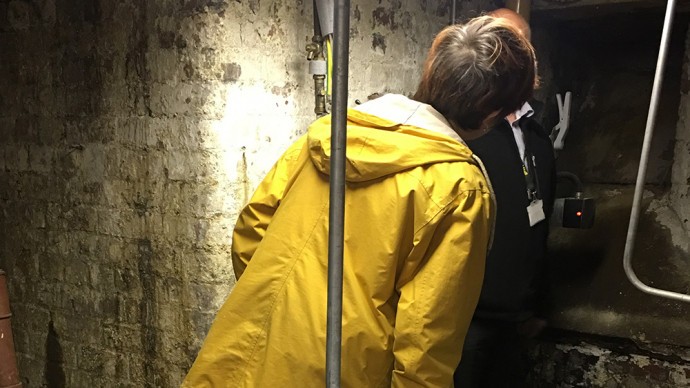
Research: The Odd Project: Feeling different in the world of education
Exploring what oddness means and why it matters.
Components
Project summary
January 2018 to September 2021.
In this interdisciplinary project, researchers from Manchester Met and Sheffield Hallam universities worked together with young people and the wider school community to explore what oddness might mean.

What is oddness?
Researchers asked what its value is, why it matters and what it reveals about ordinary, everyday encounters between people, places and things inside school and beyond.Based in a primary school in Manchester, the project engaged with young people’s perceptions of difference, strangeness and unfamiliarity in different spaces, times and experiences. It asked how this sense of strangeness affects their lives in ways that can be exciting, scary, curious, exhilarating, or threatening.
The investigation sought to better understand children’s experiences of ‘fitting in’ or feeling ‘the odd one out’ at school. The study brings together perspectives from art, anthropology, education and the whole school community, and values the expertise of each co-researcher, including children, parents and carers, and staff of the school.
By using a range of research methods, the team asked pressing and often difficult questions of the school culture, its buildings and everyday practices, from the way each day is structured by the curriculum, to the passage of time in a week or year. They were interested in the relations the children develop with the school building itself, its atmospheres, outdoor landscapes, strange structures and odours, as well as the relationships they build with one another and the adult people around them.
The research recognises the ethical urgency of tackling the idea of difference in innovative ways, in response to the daily struggles some children face.
The whole school community are taking a creative journey into the concept of 'oddness'. We needed an interdisciplinary approach to break out of conventional educational thinking about difference and conformity.
“This research project emerged from our concerns about how feeling ‘out of place’, or the ‘odd one out’ in school, can have a detrimental impact on some children, whilst being mindful that others occupy this space more confidently.” said principal investigator Prof Rachel Holmes.
Despite decades of educational interventions around inclusion and wellbeing, some schools continue to be hostile environments for many children who fail to achieve ‘normality’ (Deschenes et al. 2001; Watson 2016). With an interest in why some children do not find it easy to ‘fit in’ at school, the research engages with ‘odd’ as an ethical necessity, a way to tackle the idea of ‘difference’ innovatively so as to respond to the daily struggles some children face in a stifling school culture where the pressure to conform is overwhelming. Our research aims to provide knowledge about odd-ness and its effects, as a way of engaging with and informing policy and contributing to the training of healthcare and education professionals.
The project was carried out in collaboration with Becky Shaw, an artist, and researcher from Sheffield Hallam University, freelance artist Steve Pool, Amanda Ravetz, Research Professor in the Faculty of Arts and Humanities at Manchester Met and Kate Pahl, Director of the Education and Social Research Institute at Manchester Met.
Researchers
Research team
Principal researcher
Co-researchers
-
Becky Shaw
Research associate
Funding
The project was funded by the Arts and Humanities Research Council, and in addition to Alma Park primary school, has a number of project partners including the National Children’s Bureau the Anti-Bullying Alliance and Catalyst Psychology.
The processes and outcomes of the project continue to inform the training of healthcare and education professionals, contributing to anti-bullying and inclusion policies and school improvement agendas in school, and developing protocols for interdisciplinary working in qualitative research.
Blockquote
These projects are significant, not just in terms of the value of the funds they have been awarded, but also in terms of the potential impact they have on our education system.
Funding
Project partners





Funded by

Contact
Contact us
If you would like to get involved, have any questions about the project, or would like to share your experience of oddness please email Rachel Holmes.










